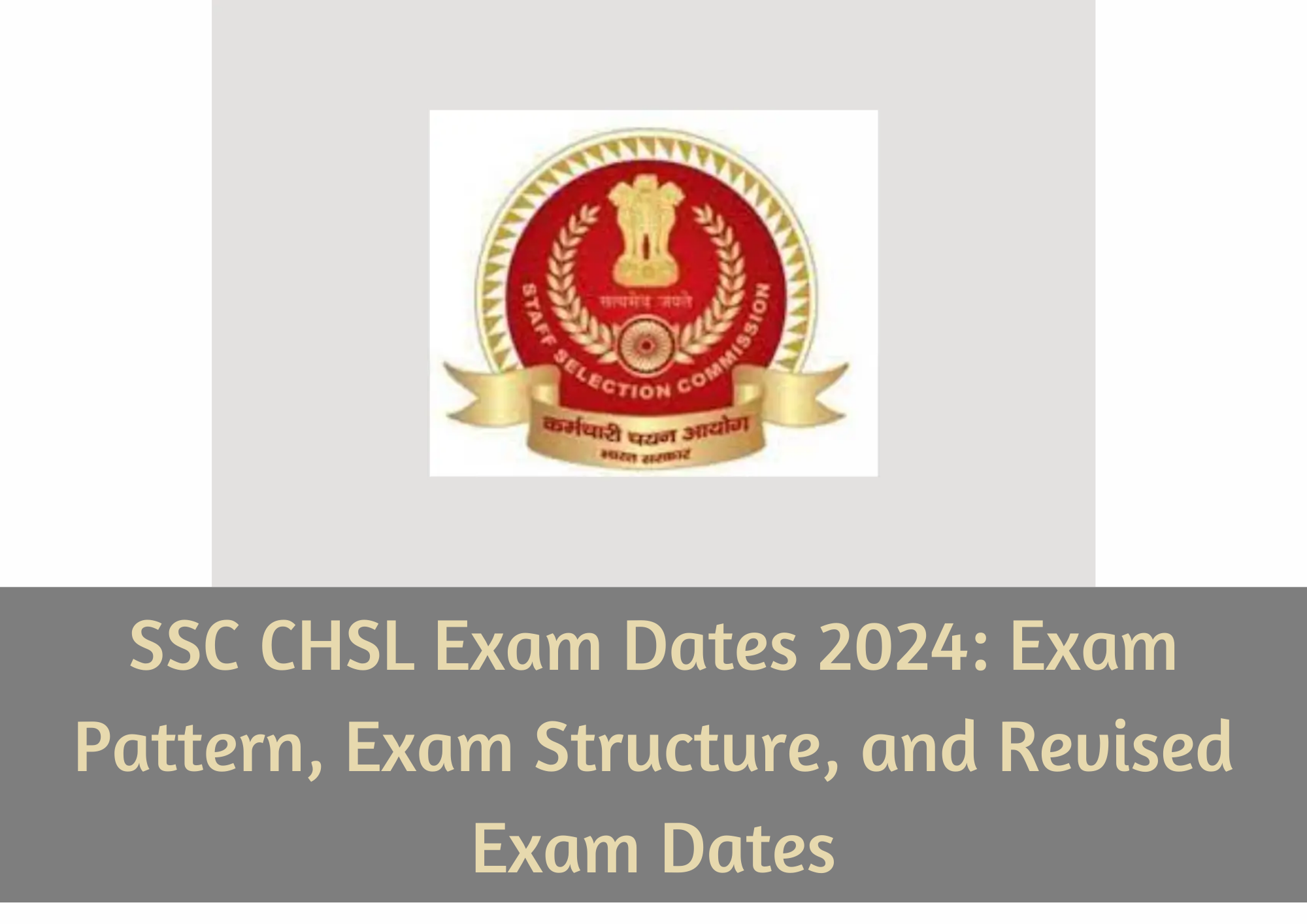
SSC CHSL Exam Dates 2024: Exam Pattern, Exam Structure, and Revised Exam Dates
The Staff Selection Commission Combined Higher Secondary Level (SSC CHSL) examination is a pivotal event for many aspiring candidates seeking positions in various government departments. As we approach 2024, it’s crucial for candidates to stay informed about the latest updates regarding the SSC CHSL exam dates, pattern, and structure. This article provides a comprehensive guide to the SSC CHSL Exam Dates 2024, detailing the exam pattern, structure, and any revised dates.

Source: Learning Routes
Overview of SSC CHSL Examination
The SSC CHSL examination is conducted by the Staff Selection Commission (SSC) to recruit candidates for various posts in government ministries and departments. These positions typically include Lower Divisional Clerk (LDC), Junior Secretariat Assistant (JSA), Postal Assistant (PA), and Sorting Assistant (SA).
SSC CHSL Exam Dates 2024
Tentative Exam Schedule
As of the latest updates, the SSC CHSL Exam 2024 is scheduled to be held in multiple phases throughout the year. The tentative dates for the 2024 SSC CHSL examination are as follows:
- Tier-I (Computer-Based Test): February 2024 to March 2024
- Tier-II (Descriptive Paper): April 2024
- Tier-III (Skill Test/Typing Test): June 2024 onwards
It is important for candidates to regularly check the official SSC website or trusted news sources for any updates or changes to these dates. The exact dates for the exams will be published in the official SSC CHSL 2024 notification.
Revised Dates
In recent years, exam schedules have been subject to change due to various factors such as administrative decisions or unforeseen circumstances. Candidates should be prepared for potential revisions to the dates and stay updated by checking official announcements from the SSC.
SSC CHSL Exam Pattern 2024
The SSC CHSL exam is structured into three tiers, each designed to evaluate different aspects.
Tier-I: Computer-Based Test (CBT)
1. Exam Structure
- Type: Objective Multiple Choice Questions (MCQs)
- Duration: 60 minutes
- Sections:
- General Intelligence and Reasoning
- General Awareness
- Quantitative Aptitude
- English Language
- Total Questions: 100
- Marks: 200 (2 marks per question)
2. Negative Marking
0.50 marks were reduced for each incorrect answer.
3. Key Points
- The questions are designed to test the candidate’s general aptitude and awareness.
- The CBT assesses basic skills and knowledge necessary for clerical positions.
Tier-II: Descriptive Paper
1. Exam Structure
- Type: Descriptive
- Duration: 60 minutes
- Sections:
- Essay Writing
- Letter Writing
- Marks: 100
2. Key Points
- This tier evaluates the candidate’s writing skills and ability to present information clearly and coherently.
- It is important to practice writing essays and letters on various topics.
Tier-III: Skill Test/Typing Test
1. Exam Structure
- Type: Skill-based
- Duration: Varies
- Tests:
- Typing Test (for PA/SA posts): Typing speed in English or Hindi
- Skill Test (for LDC/JSA posts): Data entry skills
2. Key Points
- The Skill Test/Typing Test assesses practical abilities relevant to the job roles.
- Candidates need to qualify this tier to be considered for final selection.
Exam Structure: Detailed Breakdown
General Intelligence and Reasoning
It is designed to evaluate how well candidates can understand and solve problems based on logical reasoning and pattern recognition.
Analogies
Analogies involve identifying the relationship between a pair of words or numbers and applying the same relationship to another pair.
- Purpose: Tests the ability to understand relationships and draw parallels.
- Types: Verbal (word-based) and non-verbal (figure-based) analogies.
Series
Series questions require candidates to identify patterns in a sequence of numbers, letters, or shapes and predict the next item in the series. For instance, if a sequence follows a numerical pattern like 2, 4, 8, 16, candidates need to determine the next number (which would be 32).
- Purpose: Evaluates pattern recognition and logical progression skills.
- Types: Number series, letter series, and mixed series.
Coding-Decoding
Coding-Decoding questions involve translating words or numbers into codes or deciphering codes to retrieve the original words. For instance, if “ABCD” is coded as “BCDE,” then “EFGH” would be coded as “FGHI.”
- Purpose: Tests the ability to decipher coded messages and understand encoding schemes.
- Types: Letter coding, number coding, and symbol-based coding.
Blood Relations
Blood Relations questions determine how individuals are related to each other based on given information.
- Purpose: Assesses understanding of family relationships and logical deduction.
- Types: Direct relations (parent, sibling) and indirect relations (uncle, cousin).
Direction Sense
Direction Sense questions assess a candidate’s ability to understand and follow directional instructions. For example, if someone walks 5 km north and then turns east, the question might ask the final direction or distance from the starting point.
- Purpose: Tests spatial awareness and the ability to follow and interpret directional cues.
- Types: Directions based on maps, compass directions, and relative movements.
Each of these areas is critical for demonstrating strong reasoning skills and logical thinking, which are essential for clerical positions and other roles assessed in the SSC CHSL exam.
General Awareness
Key topics include
- History
- Geography
- Economy
- Culture
- Sports
- Current Events
Quantitative Aptitude
- Arithmetic
- Algebra
- Geometry
- Data Interpretation
- Trigonometry
English Language
This section assesses the candidate’s proficiency in English. It covers:
- Grammar
- Vocabulary
- Comprehension
- Sentence Formation
- Error Detection
Preparation Tips
- Understand the Syllabus: Thoroughly review the syllabus for each tier and focus on key topics.
- Practice Regularly: Regular practice using sample papers and previous years’ question papers is essential.
- Time Management: Develop good time management skills to handle the exam pressure effectively.
- Stay Updated: Keep an eye on official notifications and updates to ensure you do not miss any important information.
With the SSC CHSL Exam Dates 2024 approaching, it is essential to stay informed about the exam pattern, structure, and any revised dates. By understanding the exam pattern.




